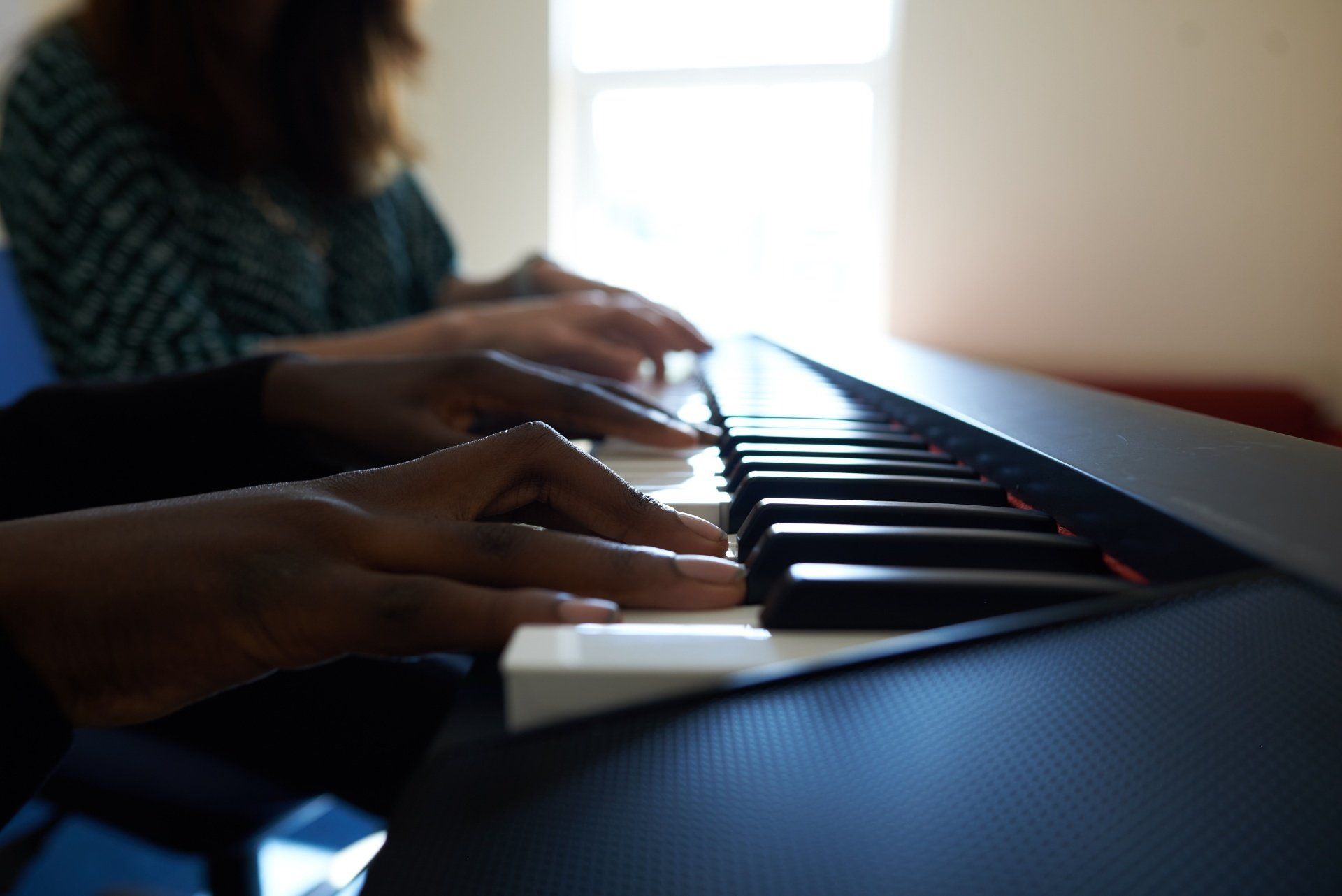Why Music Therapy?
How does music therapy differ from other therapies...

There are many reasons to choose music therapy as an intervention service. Here is a roundup of a few amazing benefits it can offer:
No musical skills required
Music therapy does not aim to teach the child how to play an instrument but instead develops techniques such as singing, rap-writing, rhythmic-based activities, improvisation and listening.
Music therapy engages and connects children and young people. It encourages social and communication skills, emotional expression and cognition. It has a profound neurological impact which assists physical and psychological change.
The music therapist supports the client’s sounds through improvising with them. In this way children quickly realise that musical ability is not relevant as all sounds are incorporated within the music they make together. The confidence and engagement this engenders means that over time a trusting relationship can evolve and through which emotions can be expressed and issues explored within a safe environment using both verbal and non-verbal clinical techniques.

Acceptance
Music therapy uses a person-centred approach which is rooted in accepting the person for how they present in that particular moment or session. If an individual is fatigued, upset or feeling flat, then the music therapist will accept this, offer an experience where the young person can feel heard and offer a music making session which will validate the person whilst offering a chance for active participation in a non-verbal medium.
Beyond the room
The ultimate aim is to provide an outlet for emotional expression so that the child can then better access their educational needs and learning. The music is employed as a creative arts resource and communication tool in a therapeutic setting with the music therapist to foster positive change . The therapist encourages individuals to draw on their inner creative resources and express their feelings without necessarily using words.
Flexibility
Music Therapist have to be flexible in many senses of the word! They need wide musical genre knowledge and an ability to adapt to the client's music with a culturally sensitive approach. The client's language, communication mode and style inform the music therapist's responses as well as the values and traditions that an individual may bring. Be it lyric creation, rap writing, free association, improvisation, music-assisted relaxation, singing familiar songs or drumming, the music therapist must be able to continually assess the client and the best possible intervention responses.




